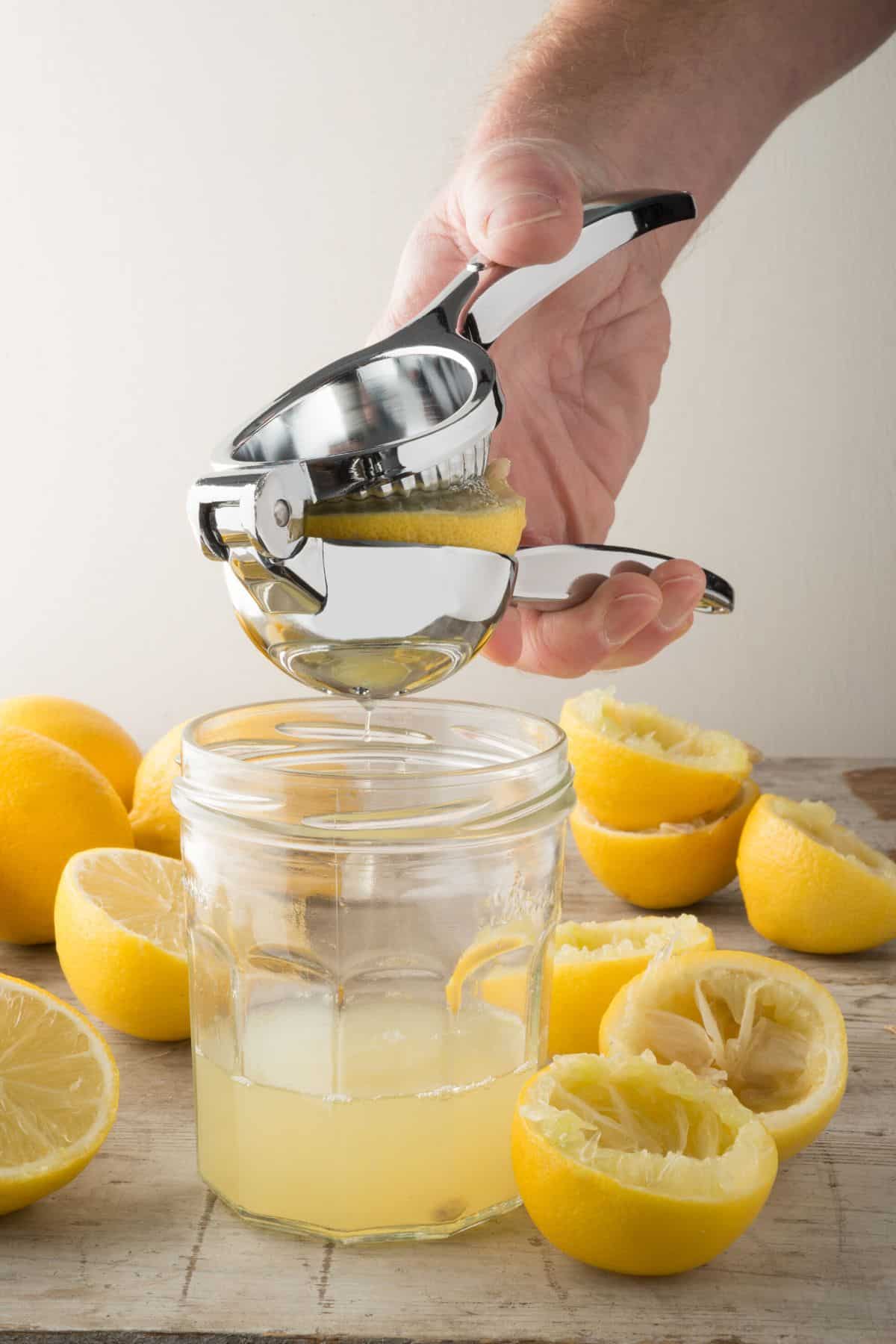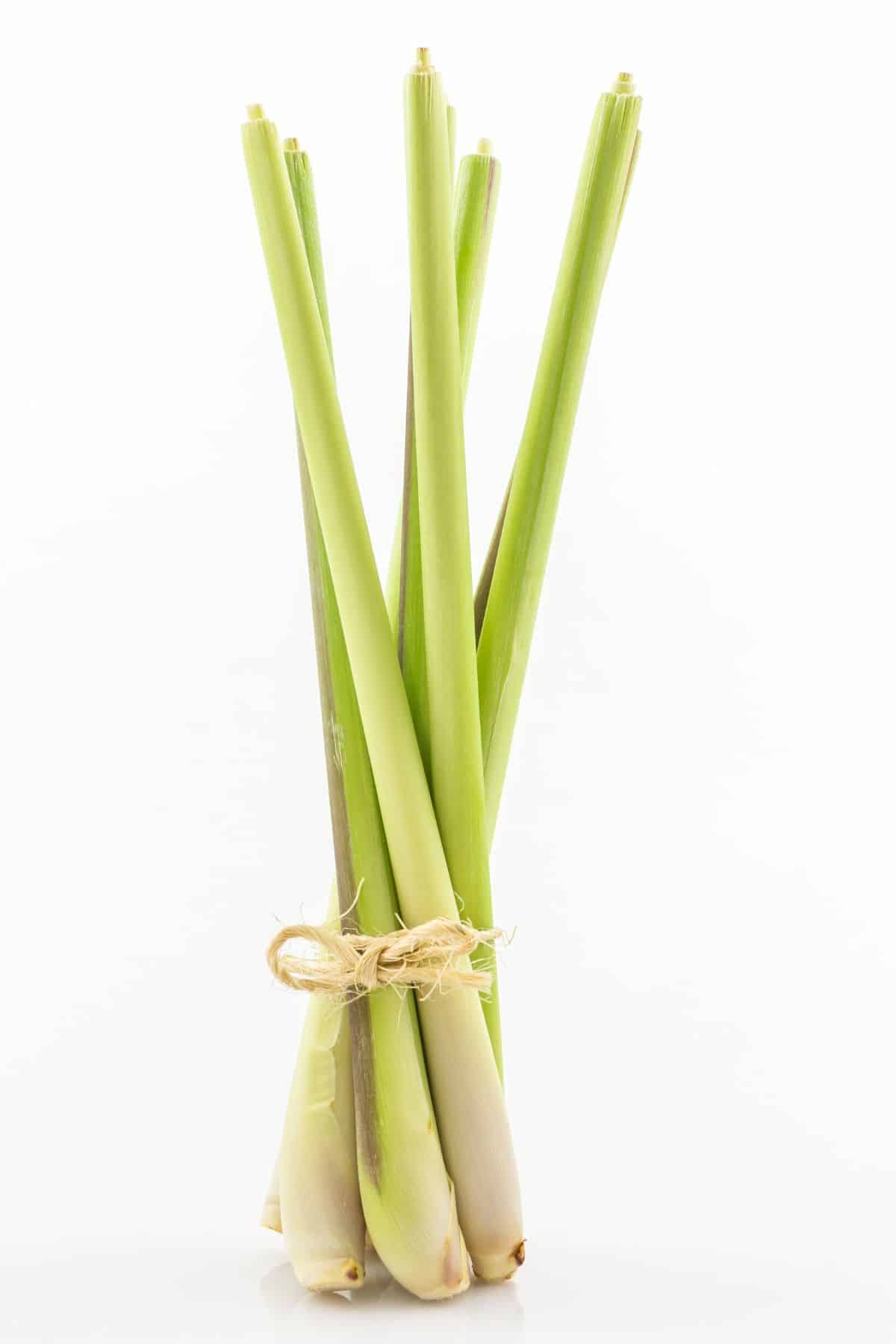If you are looking for the best Lemon zest substitute for baking or cooking recipes, you are at the right place. So what can you use if you run out of lemon zest? If you enjoy cooking and baking I recommend always having a bunch of lemons ready in the fruit bowl. However, for those times when you run out, you need an easy and quick alternative to lemon zest so I will share with you 14 lemon zest replacements. Keep on reading!
Jump to:
- What is lemon zest?
- Is lemon zest the same thing as lemon peel?
- How to make lemon zest?
- What does lemon zest do in a recipe?
- What is the best lemon zest substitute?
- 1. Dried Lemon peel
- 2. Candied lemon zest
- 3. Lemon extract
- 4. Lemon juice
- 5. Lemon syrup
- 6. Lemon marmalade
- 7. Lemon essential oil
- 8. Lemon-infused olive oil
- 9. Orange zest
- 10. Lime zest
- 11. Clementine zest
- 12. Yuzu zest
- 13. Lemon pepper
- 14. Lemon grass
- 15. Leave it out
- Lemon zest substitute FAQs
- Conclusion
- The BEST Lemon Zest Substitute
What is lemon zest?
Lemon zest is the outer skin of the lemon. You can remove it using a lemon zester or vegetable peeler, but you only want to peel the colorful external layer. Beneath this lies the bitter white pith which is unpleasant to taste so it's best to avoid it in cooking or baking.
Lemon zest contains essential oils. When you zest the lemon, it ruptures the cell walls and releases the oil in the peel. These aromatic oils are what produce the lovely sweet lemony flavor.
Is lemon zest the same thing as lemon peel?
No, they are not. First, you should know lemon zest is part of the lemon peel. If we’re being correct, lemon zest is the thin, yellow outer layer of the lemon. This part contains fragrant citrus oils which burst with the bright flavor of the fruit without the tartness of the juice. The peel or rind is the complete outer skin including the white pith and because the pith is bitter and unpleasant it’s rarely used in recipes.

How to make lemon zest?
It’s really easy to zest a lemon and there are a few ways to do it. First, you’ll want to wash your lemon as lemons are often coated with wax. To remove the wax from your lemon, immerse it in hot water and scrub. Dry and zest right away. Alternatively, use organic or un-waxed lemons.
You can make lemon zest by peeling the thin yellow layer with a zester or a vegetable peeler. You can also shave the zest with the small teeth on a box grater. The best tool for the job (and a good investment if you use a lot of lemon zest) is a Microplane. This is a handheld, very fine, and shallow-toothed grater that removes the outer peel.
If you want you can freeze lemon zest. Just store it in the freezer in a sealable plastic bag. Then you’ll have lemon zest on hand next time you need it.

What does lemon zest do in a recipe?
Lemon zest is practically a staple in all cooking and baking. All kinds of sweet and savory recipes call for lemon zest. While it is typically used in Mediterranean cooking and several lemon dessert recipes, you can add it to just about anything you like, and it will add flavor, seasoning, freshness, and color.
- Enhance flavor - Like salt, lemon zest balances and brings out the flavors of just about any food or drink. A pinch of lemon zest added at the end of cooking can accentuate the flavors in your recipe and make your dish even more delicious.
- Adds a burst of freshness to any dish - Unlike the juice, which is tart and a little sour, the lemon zest contains essential oils giving you a bright sweet flavor.
- Garnish anything from salads to cakes - Delicate slivers of bright yellow zest are so pretty. The acid-yellow color pop makes your food aesthetically pleasing as well as tasty.
- Goes great in savory dishes - such as meat, pasta, rice, bbq, curries, soups, and stews. It adds that distinctive zingy taste while bringing out the other flavors.
- Stir it in at the end of cooking - so the flavors stay bright and tasty, not bitter.
- Balance a rich sauce - with the addition of fresh lemon zest. Mix it into a homemade vinaigrette to give it that pep. Or even add to store-bought mayonnaise to give the flavor a lift.
- Lighten fried food - Add it to the batter or at the end of cooking to balance the heaviness.
- Makes delicious desserts - In a recipe like lemon bundt cake or lemon meringue tart you want to give a deeper more three-dimensional flavor profile. Include the zest along with the other ingredients to really make those lemon flavors sing. In fact, folding in two or three tablespoonfuls of lemon zest to the mixture will make any dessert extra special.
- Gives a lovely fresh taste - the perfect finishing touch to hot and cold beverages.
It would probably be quicker to list what lemon zest doesn’t do in your cooking and baking! Obviously, you can just skip it if you don't have any, but when you're craving that lemony flavor there are some alternatives to substitute lemon zest.
What is the best lemon zest substitute?
When it comes to the best alternative to lemon zest it all depends on what the lemon zest is bringing to the party. Is it acting as a seasoning to bring out the other flavors? In that case, you want something that emulates lemon zest's superpower as a taste enhancer like lemon oil or dried lemon peel.
Any other citrus zest or dried lemon peel will sprinkle nicely on any sweet or savory dish if you want a garnish.
Some of the lemon zest substitutes listed here come in liquid form so their role is more in providing the lemon flavor. Avoid using them if you need to get the texture just right.
You may be wondering "can lemon zest be substituted in a recipe?" The short answer is yes, there are many acceptable substitutes, but you have to consider what part the lemon zest plays in the recipe. That will help you determine the most suitable alternative.
1. Dried Lemon peel
This is dehydrated lemon zest. This is a great alternative when you don’t have fresh lemon zest and you want a zesty aroma to your cooking. Use it anywhere that you’d use fresh lemon zest.
How to use it:
It has a sharper, more concentrated flavor, meaning you need to use about half of it in sweet and savory recipes.
1 teaspoon lemon zest = ½ teaspoon dried lemon peel.
2. Candied lemon zest
Candied lemon zest is made by simmering fresh lemon zest in sugar syrup. It is already sweet so it's ideal for garnishing and flavoring all your baked goods and desserts. Although the candied lemon zest retains the lovely citrus flavor of fresh zest, you wouldn’t want to use this as a substitute for lemon zest in any savory dishes.
How to use it:
Substitute lemon zest for candied lemon peel in dessert recipes. Since candied lemon peel is less aromatic and sour than lemon zest, you will have to use more of it. In fact, you can use quite a lot of it eg. in cake recipes, you can easily use it as you would use eg. nuts or raisins so up to even ¼ cup.
1 teaspoon lemon zest = 2 tablespoons candied lemon zest.
3. Lemon extract
Lemon extract is made by soaking lemon peel in alcohol to preserve it. The flavor is the same as lemon zest but more concentrated, so you’ll want to use a lot less. Lemon extract is especially good in lemon-flavored desserts and sweet treats. You can also use it in savory marinades.
How to use it:
Because it’s a liquid and has a more intense flavor you can’t sprinkle it on like you would lemon zest. It's better to add it to a batter or other liquid. If you have a recipe that calls for lemon zest as a flavor enhancer, you can add about half the amount of lemon extract.
1 teaspoon of lemon zest = ½ teaspoon of lemon extract.
4. Lemon juice
Perhaps you’ve zested all your fresh lemons for a different dish and now you’re out of lemon zest or you have fresh lemons, but their rind looks a bit tired and unappealing. In this case, you can use fresh lemon juice. Lemon juice is more acidic so use it where a tart lemon flavor would be desirable. Fresh juice is preferable to bottled lemon juice
How to use it:
The flavor is not as concentrated so expect to use more lemon juice to get the lemony flavor. It's best for sweet or savory recipes when it’s ok to add extra liquid like lemon curd. Use it sparingly in baking as it can change the consistency and curdle dairy. Just take into account the extra liquid with your other ingredients. To reduce the tartness you can add a pinch of sugar.
1 teaspoon of lemon zest = 2 tablespoons of lemon juice.

5. Lemon syrup
The lemon syrup is 50%-50% mix of sugar and lemon juice that is cooked for a few minutes until a syrupy consistency is achieved. For cake recipes, you can easily substitute lemon zest by applying lemon syrup on the cakes after baking.
How to use it:
Cook lemon syrup using an equal amount of freshly squeezed lemon juice and sugar, then apply syrup on top of your baked goods (eg. cake, muffins) after baking. I explain in more detail how to apply lemon syrup in my lemon meringue loaf recipe.
6. Lemon marmalade
Lemon marmalade is made of lemons, zest, sugar, and water so it has the same lovely lemony taste, but is sweeter. If you’re baking and crave a lemon flavor but don’t have any lemons to hand, lemon marmalade could be a good substitute for lemon zest.
How to use it:
Lemon marmalade could also be used as a simple sweet glaze for meat or added to marinades or vinaigrette. Why not dollop some on your breakfast porridge instead of lemon zest?
1 teaspoon of lemon zest =1 tablespoon lemon marmalade.
7. Lemon essential oil
Yes, you can cook with essential oils! Lemon is one of them. Which means it’s a great lemon zest substitute. It gives a lovely fresh lemony taste. As I mentioned before, lemon zest contains these essential oils so it makes sense to use it as a substitute in your cooking.
How to use it:
Make sure you choose a natural, edible oil without any artificial ingredients. Because it's highly concentrated you just need a small amount.
1 teaspoon of lemon zest = ¼ teaspoon of lemon essential oil.
8. Lemon-infused olive oil
For a lovely lemony flavor why not use lemon-infused olive oil in place of lemon zest? You can of course use it in marinades, vinaigrettes, sauces, and other savory cooking, but you can also add this to your baking.
How to use it:
Some cupcakes and baked goods use oil as the fat, so you could try this if don’t have the zest to hand. Lemon-infused olive oil would be a good substitute for lemon zest in muffins.
Substitute the same quantity of lemon-infused oil as the amount of cooking oil in the recipe.
9. Orange zest
You can use any citrus zest interchangeably with lemon zest however, you will get a different flavor profile and orange zest is much sweeter. This would be a great alternative in desserts where maintaining the right texture is essential, for example in whipped cream.
How to use it:
Simply zest the orange in the same way as you would the lemon using a zester, veg peeler, grater, or Microplane and add it to the recipe.
1 teaspoon lemon zest = 1 teaspoon orange zest.

10. Lime zest
Lime zest can be used as a substitute for lemon but it will take the flavor in a different direction. Lime is sharper and used more in Asian and South American cooking while lemons are used more in Mediterranean-style dishes.
How to use it:
Sometimes the flavor might not always work the same. Just think through what makes sense. With lime zest, you simply use it the same way you use lemon zest.
1 teaspoon lemon zest= 1 teaspoon lime zest.
11. Clementine zest
Clementine zest is similar to orange zest as it has a lovely sweet aromatic flavor. This would work well in a sweet dish where you want to maintain the same texture as lemon zest.
How to use it:
Zest using a veg peeler, fine side of a cheese grater, zester, or Microplane and add to the dish in the same ratio.
1 teaspoon lemon zest = 1 teaspoon clementine zest.
12. Yuzu zest
The Japanese Yuzu has long been used in Chinese and Tibetan cuisine. It's a yellow citrus fruit that looks like a rounder knobblier lemon. It has a lemony sweet aromatic flavor that makes it an interesting substitute for lemon zest.
How to use it:
Simply remove the zest using the above zesting methods and you can use the yuzu zest in the same way as the lemon zest in any savory or sweet dish.
1 teaspoon lemon zest = 1 teaspoon yuzu zest.
13. Lemon pepper
Lemon pepper is a great addition to any pantry. It's black pepper that has been infused with dried lemon peel so if you stock it, you will always have the opportunity for a zesty flavor to hand.
How to use it:
Use as a lemon zest alternative to season savory dishes including meat, fish, vegetables, pasta, soups, and sauces.
Simply add to taste.
14. Lemon grass
Lemongrass is a herb with a unique lemony fragrance used frequently in Asian cooking. It has a more herby, complex flavor than lemon zest but will enhance any savory dish. It's a bit more difficult to use in baking, but you could infuse some milk with lemongrass and add that to your batter to get the lemony flavor.
How to use it
Add to savory dishes, particularly Thai curries and any Southeast Asian cuisine.
½ teaspoon lemon zest = 1 stalk of lemon grass.

15. Leave it out
Unless the hero flavor of the dish you are making is lemon (so that lemon zest or a substitute cannot be left out), you might want to experiment with other flavorings and spices that can work well with the recipe you are making. Typically vanilla bean work with almost any dessert!
Lemon zest substitute FAQs
There are several great lemon zest alternatives that I detail in this article from another citrus zest eg. orange zest to another form of lemon product eg. lemon juice, lemon extract, lemon marmalade, lemon peel, etc. Deciding what to use instead of lemon zest always depends on the initial usage of the lemon zest and other ingredients of the recipe.
In many cases yes you can use (preferably freshly squeezed) lemon juice instead of lemon zest. However, lemon juice is an acid ingredient that is liquid, so use it where a tart lemon flavor would be desirable and where adding a liquid ingredient to the recipe, won´t ruin it. To reduce the tartness you can add a pinch of sugar.
There are plenty of ways to zest a lemon, the important thing is to remove the thin yellow zest and avoid getting the bitter white pith. You can use a vegetable peeler, a zester, a Microplane, or the small teeth on your box cheese grater. If you regularly zest lemons a Microplane is a good investment because it’s super sharp and gets the job done quickly.
Vinegar might be a good lemon zest replacement when you are looking for tartness only eg. salad dressing, however, I would avoid using vinegar in dessert recipes.
Lemon juice is an acid liquid that you squeeze out of a whole lemon while lemon zest is part of the lemon peel, the outer part of the lemon fruit. Lemon zest contains fragrant citrus oils that taste utterly delicious in various cooking and baking recipes.
1 tablespoon of lemon zest equals 6 tablespoons of lemon juice.
The lemon juice flavor is not as concentrated so expect to use more lemon juice to get the lemony flavor but also do not forget to take into account the extra liquid with your other ingredients. To reduce the tartness of the lemon juice, you can add some sugar.
Conclusion
You might not always have lemons to hand for zesting and you might wonder "what can I use if I don't have lemon zest?" Using lemon zest is a wonderful addition to your recipes and luckily, there are plenty of alternatives when you want that lovely tangy taste in your baking or cooking. Use this guide and just choose the one that makes the most sense to you for your recipe.

The BEST Lemon Zest Substitute
Ingredients
Overall Best Option
- ½ teaspoon (1 cups) Dried Lemon peel to replace 1 teaspoon lemon zest
Best flavor
- ½ teaspoon Natural Lemon extract to replace 1 teaspoon lemon zest
Most similar texture
- 1 teaspoon Lime zest to replace 1 teaspoon lemon zest
US customary cup measurement is an indicative figure only. Measure the ingredients with a digital scale by weight (gram). Baking is art but also science which requires precision and accuracy.
Instructions
- When it comes to the best alternative to lemon zest it all depends on what the lemon zest is bringing to the party in the initial recipe. Think about that first, and that will help you determine the most suitable alternative.

Laura
Loved reading your lemon zest guide, who knew that lemon grass can be a great substitute for lemon zest:)